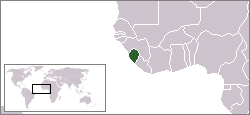
The AIDS epidemic, caused by HIV, found its way to the United States between the 1970s and 1980s, but was first noticed after doctors discovered clusters of Kaposi's sarcoma and pneumocystis pneumonia in homosexual men in Los Angeles, New York City, and San Francisco in 1981. Treatment of HIV/AIDS is primarily via the use of multiple antiretroviral drugs, and education programs to help people avoid infection.

HIV/AIDS originated in the early 20th century and remains a significant public health challenge, particularly in Africa. Although the continent constitutes about 17% of the world's population, it bears a disproportionate burden of the epidemic. As of 2023, around 25.6 million people in sub-Saharan Africa were living with HIV, accounting for over two-thirds of the global total. The majority of new infections and AIDS-related deaths occur in Eastern and Southern Africa, which house approximately 55% of the global HIV-positive population.

Men who have sex with men (MSM) are men who engage in sexual activity with other men, regardless of their sexual orientation or sexual identity. The term was created by epidemiologists in the 1990s, to better study and communicate the spread of sexually transmitted infections such as HIV/AIDS between all sexually active males, not strictly those identifying as gay, bisexual, pansexual or various other sexualities, but also for example male prostitutes. The term is often used in medical literature and social research to describe such men as a group. It does not describe any specific kind of sexual activity, and which activities are covered by the term depends on context. The alternative term "males who have sex with males" is sometimes considered more accurate in cases where those described may not be legal adults.

Gay men are male homosexuals. Some bisexual and homoromantic men may dually identify as gay and a number of gay men also identify as queer. Historic terminology for gay men has included inverts and uranians.

The global pandemic of HIV/AIDS began in 1981, and is an ongoing worldwide public health issue. According to the World Health Organization (WHO), by 2023, HIV/AIDS had killed approximately 40.4 million people, and approximately 39 million people were infected with HIV globally. Of these, 29.8 million people (75%) are receiving antiretroviral treatment. There were about 630,000 deaths from HIV/AIDS in 2022. The 2015 Global Burden of Disease Study estimated that the global incidence of HIV infection peaked in 1997 at 3.3 million per year. Global incidence fell rapidly from 1997 to 2005, to about 2.6 million per year. Incidence of HIV has continued to fall, decreasing by 23% from 2010 to 2020, with progress dominated by decreases in Eastern Africa and Southern Africa. As of 2023, there are about 1.3 million new infections of HIV per year globally.
Same-gender-loving, or SGL, a term coined for African American and African Diaspora use by activist Cleo Manago, is a description for homosexuals in the African American community. It emerged in the early 1990s as a culturally affirming African American homosexual identity.
The Caribbean is the second-most affected region in the world in terms of HIV prevalence rates. Based on 2009 data, about 1.0 percent of the adult population is living with the disease, which is higher than any other region except Sub-Saharan Africa. Several factors influence this epidemic, including poverty, gender, sex tourism, and stigma. HIV incidence in the Caribbean declined 49% between 2001 and 2012. Different countries have employed a variety of responses to the disease, with a range of challenges and successes.
Joël Gustave Nana Ngongang (1982–2015), frequently known as Joel Nana, was a leading African LGBT human rights advocate and HIV/AIDS activist. Nana's career as a human rights advocate spanned numerous African countries, including Nigeria, Senegal and South Africa, in addition to his native Cameroon. He was the Chief Executive Officer of Partners for Rights and Development (Paridev) a boutique consulting firm on human rights, development and health in Africa at the time of his death. Prior to that position, he was the founding Executive Director of the African Men for Sexual Health and Rights (AMSHeR) an African thought and led coalition of LGBT/MSM organizations working to address the vulnerability of MSM to HIV. Mr Nana worked in various national and international organizations, including the Africa Research and Policy Associate at the International Gay and Lesbian Human Rights Commission (IGLHRC), as a Fellow at Behind the Mask, a Johannesburg-based non-profit media organisation publishing a news website concerning gay and lesbian affairs in Africa, he wrote on numerous topics in the area of African LGBT and HIV/AIDS issues and was a frequent media commentator. Nana died on October 15, 2015, after a brief illness.
Many countries have laws, regulations, or recommendations that effectively prohibit donations of blood or tissue for organ and corneal transplants from men who have sex with men (MSM), a classification irrespective of their sexual activities with same-sex partners and of whether they identify themselves as bisexual or gay. Temporary restrictions are sometimes called "deferrals", since blood donors who are found ineligible may be found eligible at a later date. However, many deferrals are indefinite meaning that donations are not accepted at any point in the future, constituting a de facto ban. Even men who have monogamous relations with their same-sex partners are found ineligible.

Bisi Alimi is a British-Nigerian gay rights activist, public speaker, blog writer and HIV/LGBT advocate who gained international attention when he became the first Nigerian to come out on television.

HIV and AIDS is a major public health issue in Zimbabwe. The country is reported to hold one of the largest recorded numbers of cases in Sub-Saharan Africa. According to reports, the virus has been present in the country since roughly 40 years ago. However, evidence suggests that the spread of the virus may have occurred earlier. In recent years, the government has agreed to take action and implement treatment target strategies in order to address the prevalence of cases in the epidemic. Notable progress has been made as increasingly more individuals are being made aware of their HIV/AIDS status, receiving treatment, and reporting high rates of viral suppression. As a result of this, country progress reports show that the epidemic is on the decline and is beginning to reach a plateau. International organizations and the national government have connected this impact to the result of increased condom usage in the population, a reduced number of sexual partners, as well as an increased knowledge and support system through successful implementation of treatment strategies by the government. Vulnerable populations disproportionately impacted by HIV/AIDS in Zimbabwe include women and children, sex workers, and the LGBTQ+ population.
Cases of HIV/AIDS in Peru are considered to have reached the level of a concentrated epidemic.

Lesbian, gay, bisexual, and transgender (LGBT) people in Sierra Leone face legal challenges not experienced by non-LGBTQ residents. Male same-sex sexual activity is illegal in Sierra Leone and carries a possible penalty of life imprisonment, although this law is seldom enforced.
Humsafar Trust is an NGO in Mumbai that promotes LGBT rights. Founded by Ashok Row Kavi, Suhail Abbasi, and Sridhar Rangayan in 1994, it is one of the largest and most active of such organisations in India. It provides counselling, advocacy and healthcare to LGBT communities and has helped reduce violence, discrimination and stigma against them. Humsafar Trust is the convenor member of Integrated Network for Sexual Minorities (INFOSEM).
Since reports of emergence and spread of the human immunodeficiency virus (HIV) in the United States between the 1970s and 1980s, the HIV/AIDS epidemic has frequently been linked to gay, bisexual, and other men who have sex with men (MSM) by epidemiologists and medical professionals. It was first noticed after doctors discovered clusters of Kaposi's sarcoma and pneumocystis pneumonia in homosexual men in Los Angeles, New York City, and San Francisco in 1981. The first official report on the virus was published by the Center for Disease Control (CDC) on June 5, 1981, and detailed the cases of five young gay men who were hospitalized with serious infections. A month later, The New York Times reported that 41 homosexuals had been diagnosed with Kaposi's sarcoma, and eight had died less than 24 months after the diagnosis was made.
Stephen Chibuikem Chukwumah is a Nigerian-born advocate and strategist with extensive background in youth leadership and advocacy, policy, movement building, and fund raising. He is a public speaker and a former fellow of the Faculty of Law, University of York, England. Stephen Chukwumah had a five-year career as a lead division coordinator at the International Monetary Fund in Washington, D.C., and is currently a policy advocate at the Council for Global Equality. He is from Ebenebe in Awka North LGA, Anambra state, Nigeria.

Suriname Men United (SMU) is a non-governmental organization (NGO) established under national Surinamese law with the overall objective to improve the well-being of men who have sex with men (MSM) in Suriname. To realize its goal, SMU carries out a variety of activities in the areas of research, prevention, education, psychosocial care, and human rights advocacy.
galck+, formerly The Gay and Lesbian Coalition of Kenya (GALCK), is the national Sexual Orientation Gender Identity and Expression (SOGIE) umbrella body, representing LGBTQ+ voices across Kenya.

Sexual activities involving men who have sex with men (MSM), regardless of their sexual orientation or sexual identity, can include anal sex, non-penetrative sex, and oral sex. Evidence shows that sex between men is significantly underreported in surveys.

The health access and health vulnerabilities experienced by the lesbian, gay, bisexual, transgender, queer or questioning, intersex, asexual (LGBTQIA) community in South Korea are influenced by the state's continuous failure to pass anti-discrimination laws that prohibit discrimination based on sexual orientation and gender identity. The construction and reinforcement of the South Korean national subject, "kungmin," and the basis of Confucianism and Christian churches perpetuates heteronormativity, homophobia, discrimination, and harassment towards the LGBTQI community. The minority stress model can be used to explain the consequences of daily social stressors, like prejudice and discrimination, that sexual minorities face that result in a hostile social environment. Exposure to a hostile environment can lead to health disparities within the LGBTQI community, like higher rates of depression, suicide, suicide ideation, and health risk behavior. Korean public opinion and acceptance of the LGBTQI community have improved over the past two decades, but change has been slow, considering the increased opposition from Christian activist groups. In South Korea, obstacles to LGBTQI healthcare are characterized by discrimination, a lack of medical professionals and medical facilities trained to care for LGBTQI individuals, a lack of legal protection and regulation from governmental entities, and the lack of medical care coverage to provide for the health care needs of LGBTQI individuals. The presence of Korean LGBTQI organizations is a response to the lack of access to healthcare and human rights protection in South Korea. It is also important to note that research that focuses on Korean LGBTQI health access and vulnerabilities is limited in quantity and quality as pushback from the public and government continues.










